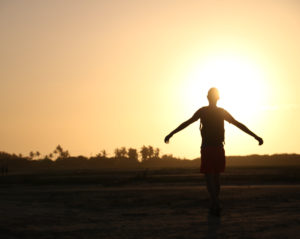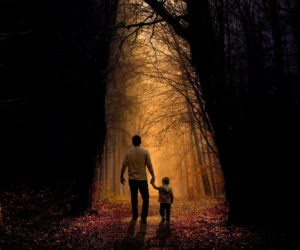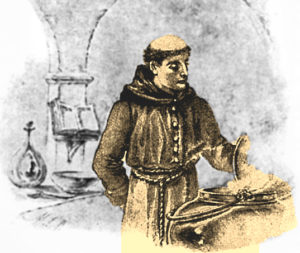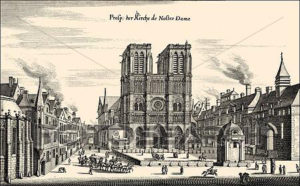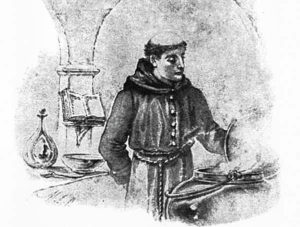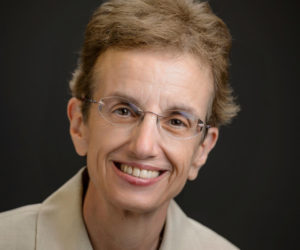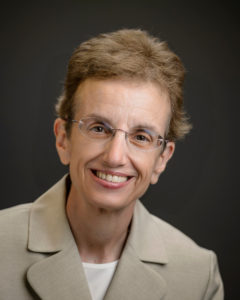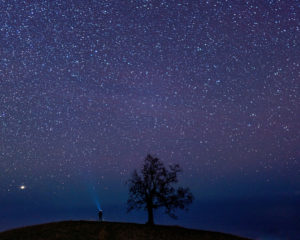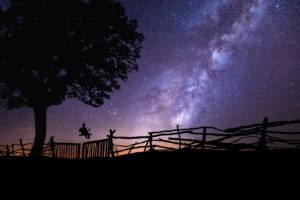A New Serenity Prayer
God, grant me the serenity
to accept the people I cannot change,
which is pretty much everyone,
since I’m clearly not you, God.
At least not the last time I checked.
And while you’re at it, God,
please give me the courage
to change what I need to change about myself,
which is frankly a lot, since, once again,
I’m not you, which means I’m not perfect.
It’s better for me to focus on changing myself
than to worry about changing other people,
who, as you’ll no doubt remember me saying,
I can’t change anyway.
Finally, give me the wisdom to just shut up
whenever I think that I’m clearly smarter
than everyone else in the room,
that no one knows what they’re talking about except me,
or that I alone have all the answers.
Basically, God,
grant me the wisdom
to remember that I’m
not you.
Amen
Used with permission of the author
You can follow Fr. James Martin on Twitter at @JamesMartinSJ
A Courage Poem
Courage is talking about courage
with tears streaming down your cheeks.
Courage is not knowing
what comes next and
stepping forward, hands unclenched,
right into it.
The bliss of the unknown is not
something you get used to.
Still, wonder opens your eyes
and you see
the first signs of new life
after hope lost all her petals and leaves –
this is what courage does for you.
There is a boldness to your heart
that matches its softness.
When threads grow apart,
time and again,
you hire love as your seamstress.
Time and again,
you ask love to make you different.
You do not expect to be the same —
nor should you want to.
You did not come into this world
to be untouched by life.
Change is the only way
to learn your eternal name.
This too you know,
that bliss is the sweet sister
to her beloved:
pain.
Nor is fear alien
to a courageous heart —
no more a stranger
than a night sky is
to its star.
My Symphony
To live content with small means;
to seek elegance rather than luxury,
and refinement rather than fashion,
to be worthy, not respectable,
and wealthy, not rich;
to study hard, think quietly,
talk gently, act frankly,
to listen to stars and birds,
to babes and sages,
with open heart,
to bear all cheerfully,
to all bravely await occasions,
hurry never.
In a word, to let the spiritual unbidden
and unconscious grow up through the common.
This is to be my symphony.
This poem is in the public domain.
The Practice of the Presence of God: Collected Teachings by Brother Lawrence
In this age of spiritual seekers and restless pilgrims, it seems that many among us are on a journey, looking for meaning, purpose and passion in life. But we might do well to explore the path of a simple, uneducated monk from the 17th century, who found holiness and contentment in the ordinary, common “business of life.”
Nicolas Herman was born into a peasant family in a village in the Lorraine region of France in 1614. Poverty limited his educational opportunities and his options. Soon after joining the army mainly for the free meals, Nicolas incurred a serious leg injury in battle during what was later called ‘The Thirty Years War’, from which he never fully recovered. He then took a job as a footman to a well-known banker and treasury official in Paris, but experienced little success due to his own self-admitted clumsiness. Nicolas described himself in a letter as “a great awkward fellow who broke everything.”
The young man’s next move was to follow in the footsteps of his uncle, who had joined the holy Carmelite Order. Nicolas himself joined a Carmelite Priory in Paris as a lay brother at the age of 26 in 1640, taking the religious name Brother Lawrence, and in 1642 made his solemn profession of vows. He was assigned to the monastery kitchen, and for a number of years continued to struggle with feelings of unworthiness. But it was in the mundane daily reality of cooking, cleaning, chopping and scrubbing that he discovered a spiritual practice that would later become a source of healing and peace for generations of Christians around the world.
Despite his lowly position in the monastery kitchen and what many described as his “rough exterior”, Brother Lawrence slowly began to attract attention because of his reputation for his plain-spoken wisdom, common sense, warm hospitality, and above all else, his profound peace and joy. One person who regularly sought him out for conversation was Father Joseph de Beaufort, Vicar General of the Diocese.
Brother Lawrence’s leg injury eventually developed into painful chronic gout, but despite his suffering (or perhaps in part because of it) his profound sense of peace and intimacy with God grew. After serving for 15 years in the monastery kitchen, he was transferred to the sandal repair shop where he could at least sit down. Here he was in charge of maintaining over a hundred pairs of sandals for the other monks at the Carmelite monastery. He continued to be a bright light in his community and beyond, and many visitors – both learned people and common folks – sought him out for spiritual guidance.
When Brother Lawrence died in 1691 at the age of 77, well beyond average life expectancy at the time, Fr. de Beaufort wrote out many of the things he had learned from their conversations. These, along with a number of letters and spiritual ‘sayings’ written by Brother Lawrence, were published in 1692 in a book called The Practice of the Presence of God. It became a much-loved classic, crossing all denominational and cultural lines. In it, Fr. de Beaufort writes, “Brother Lawrence never really spent much time worrying about dying, or his sins, or heaven, or hell. He thought only about doing small things for the love of God, because the high-profile actions were beyond his reach. Then whatever happened to him was okay, because it was up to God in the end.”1
What was Brother Lawrence’s secret? Simply to make it his lifelong habit to continually seek rest in that place in his heart where the love of God resides.
In a letter to a good friend dated November 1685, he writes, “I don’t know of a better, sweeter life than an unbroken conversation with God, a life of unlimited free minutes with Him.”2 To another friend who was feeling overwhelmed and depressed, he gives this gentle advice, “We can remodel our hearts into chapels – the perfect place for a prayer retreat, where we can humbly and peacefully come to the Lord in love without a lot of show. Everyone can do it; some more, some less, of course. God knows.”3
This practice of having an “unbroken conversation with God” made even commonplace tasks in the monastery kitchen or sandal repair shop an opportunity to experience divine union, beauty and grace. And he loved to share that practice with others. In another letter to a struggling friend, he writes, “If we want to enjoy paradise-peace in this life, we have to get used to walking and talking with God. It’s a familiar walk, as with a friend.”4
 Can we practice the presence of God in our own kitchen? Perhaps not to the degree that Brother Lawrence experienced, but we can certainly give it a try – and hopefully it will spill over into the hearts and spirits of others. In mindfully enjoying the colours, smells, shapes and tastes around us with a grateful heart…in talking to God as we wash the dishes…in praying for our loved ones as we put together a salad…perhaps we too can find that place of rest. (Listening to Gregorian chant while you chop might help as well!)
Can we practice the presence of God in our own kitchen? Perhaps not to the degree that Brother Lawrence experienced, but we can certainly give it a try – and hopefully it will spill over into the hearts and spirits of others. In mindfully enjoying the colours, smells, shapes and tastes around us with a grateful heart…in talking to God as we wash the dishes…in praying for our loved ones as we put together a salad…perhaps we too can find that place of rest. (Listening to Gregorian chant while you chop might help as well!)
Preparing food and repairing sandals for his fellow monks became a loving act of connection for Brother Lawrence, linking the gifts of the earth and the work of his hands with the gift of friendship. This can be true for us as well.
I’ll never forget an experience when my husband and I were newly married, and also new to figuring out how to “live out” our faith. I was still attending university, and we moved into an apartment near the campus – and then began a search for a nearby church to attend. At one of the churches we visited, we sat beside a very friendly elderly couple. When they realized it was our first time at their church, they immediately invited us home for lunch. We were a bit taken aback, but spontaneously decided to accept the invitation. The couple then proceeded to invite some other young couples from the church for lunch as well, so that we could get to know some other people from the church. This all appeared to be a spur of the moment decision on their part, and I remember thinking, “Boy, I could never do that – invite all these people over for lunch without planning it first.” I knew our apartment was a mess, and I knew I had next to nothing in the fridge.
Well, guess what? This elderly couple’s small home was also rather a mess – but it was a very homey, inviting mess, that spoke of their lack of pretension. The meal? We and the other young couples were served peanut butter and honey sandwiches, happily prepared by our hosts in their tiny kitchen as their guests drank tea and chatted in the living room. The main course was followed by some rather sad looking popsicles that the elderly couple dug out of the bottom of their freezer…and then more tea. It was a wonderful afternoon.
That impromptu meal taught me a very important lesson that still serves me well. Hospitality is not really about the food or the decor; it’s about the attitude. And this beautiful couple, who became mentors to my husband and me for years to come, had an attitude of joy and humility. They also had the faith and courage to follow up on those little “nudges” from God, who asks us to trust Him with the details and be generous, as He is generous.
To quote Brother Lawrence once again: “Once and for all, we need to trust God and put our whole selves in His hands. He will never lead us wrong. We shouldn’t get tired of doing little things for God either, because God doesn’t care about the size of the task – only the love behind it.”5
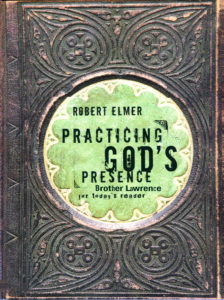 *Note: There are many translations of The Practice of the Presence of God into English from the original French, including some excellent recent versions. The quotes in this article are taken from a 2005 translation by Robert Elmer.
*Note: There are many translations of The Practice of the Presence of God into English from the original French, including some excellent recent versions. The quotes in this article are taken from a 2005 translation by Robert Elmer.
- Elmer, Robert; Practicing God’s Presence: Brother Lawrence for Today’s Reader (NavPress; Colorado Springs) 2005; pg. 26.
- Ibid; pg. 46
- Ibid; pg. 50
- Ibid; pg. 77
- Ibid; pg. 33
Pied Beauty
Glory be to God for dappled things –
For skies of couple-colour as a brinded cow;
For rose-moles all in stipple upon trout that swim;
Fresh-firecoal chestnut falls; finches’ wings;
Landscape plotted and pieced – fold, fallow, and plough;
And all trades, their gear and tackle and trim.
All things counter, original, spare, strange;
Whatever is fickle, freckled (who knows how?)
With swift, slow; sweet, sour; adazzle dim;
He fathers-forth whose beauty is past change:
Praise Him.
This poem is in the public domain.
When I Heard the Learn’d Astronomer
When I heard the learn’d astronomer,
When the proofs, the figures, were ranged in columns before me,
When I was shown the charts and diagrams, to add, divide, and measure them,
When I, sitting, heard the astronomer where he lectured with much applause in the lecture-room,
How soon unaccountable I became tired and sick,
Till rising and gliding out I wander’d off by myself,
In the mystical moist night-air, and from time to time,
Look’d up in perfect silence at the stars.
Birth of a Dancing Star: My Journey from Cradle Catholic to Cyborg Christian
Orbis Books, 2019
Review by Laura Locke
I first encountered Sr. Ilia Delio, a Franciscan Sister of Washington DC and bestselling author, when I attended an event a number of years ago at which she was speaking. I was fascinated not only by her obvious intelligence, but also by the creative way that she weaved stories together and made unusual, insightful connections. I was also impressed by the way she held the entire audience enthralled throughout the evening … and left them wanting more.
Sr. Ilia has a Ph.D in Pharmacology from Rutgers University–New Jersey Medical School. Her early adult life, after grad school, was spent working in the fields of neuroscience and neurotoxicology, as one of only a handful of women doing this type of research in those years. She later earned a Ph.D in Historical Theology from Fordham University, and went on to spend many decades teaching, speaking, and writing about science and religion. She currently holds the Josephine C. Connelly Endowed Chair in Theology at Villanova University in Pennsylvania.
I’ve read and enjoyed a number of her books (she has written twenty, and has received numerous literary awards). Two stand-out favourites for me have been The Humility of God: A Franciscan Perspective (Franciscan Media, 2005) and The Unbearable Wholeness of Being: God, Evolution and the Power of Love (Orbis Books, 2013). These books draw upon the lives of two great sources of inspiration for Sr. Ilia: Bonaventure, the 13th century Franciscan saint, and Pierre Teilhard de Chardin, the Jesuit priest and paleontologist who died in 1955. After being introduced to them through Sr. Ilia’s writings, they have become inspirations for me as well. In 2016, she founded the Omega Center (now called the Center for Christogenesis) whose mission is to deepen Chardin’s integration of science and spirituality, through articles, webinars, small groups, an online magazine and annual conferences.
As an admirer of her books, I’ve always wanted to know more about Sr. Ilia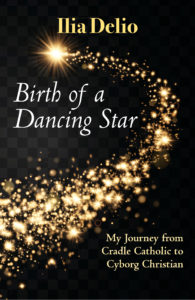 – so you can imagine my joy in recently discovering that she has written a memoir called Birth of a Dancing Star: My Journey from Cradle Catholic To Cyborg Christian (Orbis Books, 2019).
– so you can imagine my joy in recently discovering that she has written a memoir called Birth of a Dancing Star: My Journey from Cradle Catholic To Cyborg Christian (Orbis Books, 2019).
The book is a delightful page-turner, as we journey through her life. Born Denise Delio in 1955 in Lyndhurst, New Jersey into a family of Italian and Catholic heritage, she was the youngest of four children. Her father, born in Brooklyn, NY, was reserved and gentle with a great sense of humour – while her mother, a native of Sicily, was strong-willed, stylish and intellectual. Young Denise attended a Franciscan grammar school and was a gifted student, especially in math, though she suffered from a mild form of dyslexia and had a poor sense of spatial relationships. She also writes of having a sense of divine mystery very early in life, and recalls telling a teacher in grade three that she wanted to become a nun. As a young child, she writes that she was “happy just to sit and talk to God; solitude was my delight.”1 But she also enjoyed music (playing the piano and later guitar), wrote poetry, and loved sports. She was always tall for her age, and dreamt of becoming famous one day. When Denise and her parents moved to Fairfield, New Jersey just as she was beginning middle school, she had trouble making new friends, as most of the other students had grown up together. She writes with poignancy about trying to “fit in” with a group of girls who turned out to be mean-spirited bullies, and how after that stressful experience she felt “loneliness settle in like a blanket”.
Her parents grew concerned and approached her about the idea of attending an all-girls boarding school about an hour from their home. St. Mary’s Villa Academy was run by the Sister Servants of Mary Immaculate, a Ukrainian Byzantine Rite order of nuns. Her parents never realized that the school followed the Byzantine liturgical rites of the Eastern Catholic tradition until much later, but young Denise felt instantly at home there. She made a number of friends, especially a girl named Vicky, and together they became “rule testers” – always crossing boundaries, pulling pranks and generally getting into trouble – which she writes about with great zest. However, despite being almost expelled at one point, Denise always got top marks. As well, she found herself more and more drawn inwardly to God, which culminated in one particularly traumatic episode at school involving a fire, during which she had a striking personal revelation. From that moment on, she writes, she knew that she “belonged entirely to God.”2 Thus begins the wild tale of a life of adventure, struggle, and ongoing transformation; times of great turmoil and darkness, and times of stepping into the light.
Sr. Ilia writes with a keen and refreshing honesty about events in the years that follow, and of her quest to find balance and harmony in life. We learn more about her great satisfaction in her work as a scientist, her deep, fiery love for God, her love affairs and missteps, her joy at becoming a nun, her life-changing discovery of the writings of Thomas Merton, and her somewhat rocky search for a religious community in which to live and thrive. When, at one point, she regrets her decision to enter a monastery, she writes, “This was my first real lesson in how God is completely unpredictable, and perfectly at home in chaos. God gives us the freedom to shape our lives, and the most authentic life can only be found in the freedom of letting go, over and over again. Only in this way can God’s love grow.”3
We follow her through time spent living in a number of religious communities, and learn firsthand about the joys, difficulties, and qualms that she experiences. She professed her first vows as a Franciscan servant in 1991, offering her life to follow the path of St. Francis of Assisi. However, by this time a number of religious communities began to face financial insecurity and other pressing problems due to dwindling numbers.
For some time, Sr. Ilia had been considering the idea of starting a new Franciscan community. In 2006, with timely help from both friends and strangers, her idea came to fruition when the Franciscan Sisters of Washington DC was founded. She writes:
We opted to be a noncanonical community and thus not bound by the canonical evangelical counsels of poverty, chastity, and obedience. Instead we revised the vows according to our way of life: poverty as interdependence, chastity as single-heartedness, and obedience as attentive listening. Our new community adventure was extremely risky and daring because we had so few resources to rely on, but a lot of trust in God. Rather than thinking in terms of success or failure, I thought in terms of evolution; we were letting go to engage a new structure of relationship in order to participate in the emergence of Christ.4
The final three chapters in the book are a fascinating exploration of new and rising technologies, such as artificial intelligence and human/cyborg augmentations, which have the potential to destabilize our understanding of nature, culture, and what it means to be human. Sr. Ilia also writes in these chapters about love and hope and the new generation of young people, with their emphasis on “authenticity, transparency and community.”5 As she reflects on some of the pitfalls of so much time online for the ‘internet generation’, such as a loss of self-knowledge and self-reflection, she also sees that young people today are wired for a more unified planet, driven by an inner sense of “belonging to a whole.”6
I love the depth of Sr. Ilia’s thinking, and how she takes me intellectually and emotionally to ideas I would never have visited on my own. She goes beyond the usual dialogue about science and religion, and instead shows us a captivating integration of these disciplines. Along with Teilhard de Chardin, she has come to believe that the principal energy in the universe – indeed the physical structure of the universe – is love. In sharing her life story, she reminds us of the importance of taking what Dag Hammarskjold called “the longest journey – the journey inward.” Her book reveals the fruit of having the courage to set off on this journey.
I’ll end with a quote from Sr. Ilia – an example of her rich and beautiful writing, which often stopped me in my tracks to think over and re-read:
If you want to know how science and religion are related, first come to know the deepest truth of yourself. This is what I realized when I looked into the nighttime sky: I saw myself in the stars and the stars within me.7
- Birth of a Dancing Star: My Journey from Cradle Catholic to Cyborg Christian, by Ilia Delio (Orbis Books, 2019) p. 9
- Ibid, p. 29
- Ibid, p. 85
- Ibid, p. 160
- Ibid, p. 190
- Ibid, p. 191
- Ibid, p. 205
Images of Sr. Ilia Delio and Birth of a Dancing Star book cover courtesy of Orbis Books.
What I Call Living
The miser thinks he’s living when he’s hoarding up his gold;
The soldier calls it living when he’s doing something bold;
The sailor thinks it living to be tossed upon the sea,
And upon this vital subject no two of us agree.
But I hold the opinion, as I walk my way along,
That living’s made of laughter and good-fellowship and song.
I wouldn’t call it living always to be seeking gold,
To bank all the present gladness for the days when I’ll be old.
I wouldn’t call it living to spend all my strength for fame,
And forego the many pleasures which today are mine to claim.
I wouldn’t for the splendor of the world set out to roam,
And forsake my laughing children and the peace I know at home.
Oh, the thing that I call living isn’t gold or fame at all!
It’s good fellowship and sunshine, and it’s roses by the wall;
It’s evenings glad with music and a hearth fire that’s ablaze,
And the joys which come to mortals in a thousand different ways.
It is laughter and contentment and the struggle for a goal;
It is everything that’s needful in the shaping of a soul.
This poem is in the public domain.
St. Francis at the Corner Pub
Approaching the door, you can already
hear his generous laughter.
He stands on the bar upside down for a moment
to get a new perspective on things,
a flash of polka-dotted boxers
as his brown robe cascades over his head,
sandaled toes wiggling in the air in time with
a fiddle playing in the corner.
Rain falls heavily in the deepening darkness
and he orders a round of drinks
despite his vow of poverty and the single silver coin
in his pocket, multiplied by the last Guinness poured.
Nothing like a good glass of wine, he gleefully says,
heavy Italian accent echoing through the room,
he holds it up to the overhead light, pausing for a moment
lost in its crimson splendor, breathes deeply.
At ease among fishmongers and plumbers,
widows and college students, and the
single mother sneaking out for a moment
of freedom from colic, cries, and diapers.
As the wind blows rain sideways, in come the
animals, benvenuti to pigeons, squirrels, seagulls, crows,
and the neighborhood cat balding from mange,
a chorus of yowls, coos, caws, and meows arising,
all huddle around him. No one objects to the growing
menagerie, just glad to be dry and warm.
He clinks glasses all around, no one left out.
Poem used with permission of author.
Icon of St. Francis of Assisi by artist Marcy Hall. See more of Marcy’s artwork on Etsy, or follow her on Facebook and Instagram.
Remember
Remember the sky that you were born under,
know each of the star’s stories.
Remember the moon, know who she is.
Remember the sun’s birth at dawn, that is the
strongest point of time. Remember sundown
and the giving away tonight.
Remember your birth, how your mother struggled
to give you form and breath. You are evidence of
her life, and her mother’s, and hers.
Remember your father. He is your life, also.
Remember the earth whose skin you are:
red earth, black earth, yellow earth, white earth
brown earth, we are earth.
Remember the plants, trees, animal life who all have their
tribes, their families, their histories, too. Talk to them,
listen to them. They are alive poems.
Remember the wind. Remember her voice. She knows the
origin of this universe.
Remember you are all people and all people
are you.
Remember you are this universe and this
universe is you.
Remember all is in motion, is growing, is you.
Remember language comes from this.
Remember the dance language is, that life is.
Remember.
Reprinted from She Had Some Horses: Poems by Joy Harjo. Copyright © 1983, 2008 by Joy Harjo. With permission of the publisher, W.W. Norton & Company, Inc. All rights reserved.
This selection shall not be reproduced, stored in a retrieval system, or transmitted in any form by any means without the prior written permission of the publisher.
She Had Some Horses: Poems by Joy Harjo is available at Amazon.ca
Photo by Michelle Kassube


